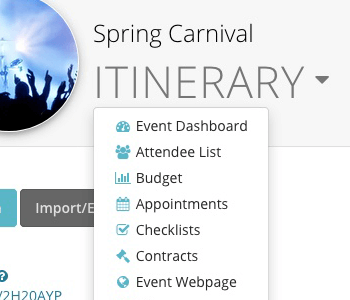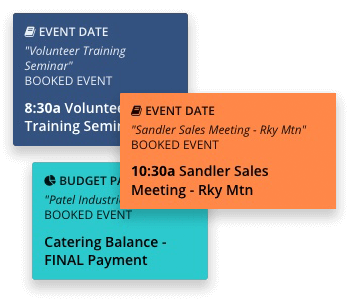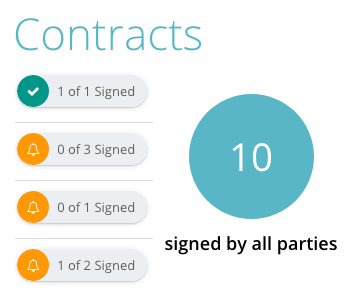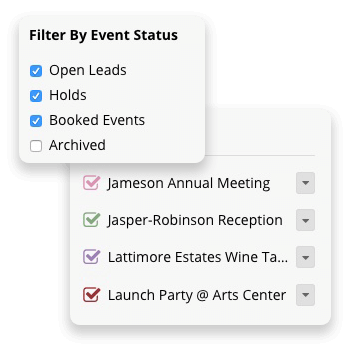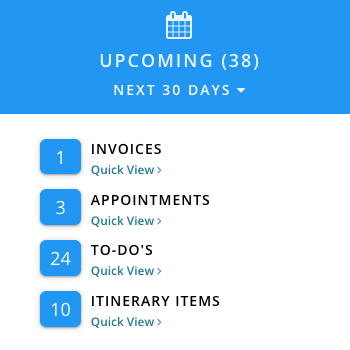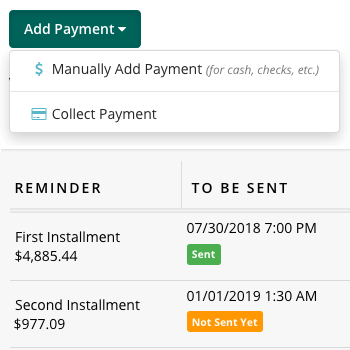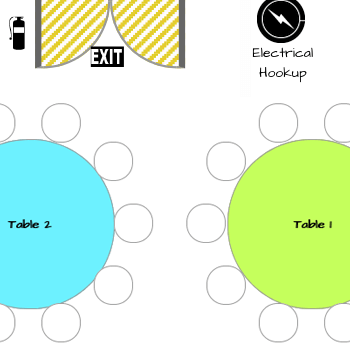10 must-have banquet hall and wedding venue management software tools
Whether you run a banquet hall or wedding venue or manage banquet sales for a hotel, restaurant or club, you are in the business of creating unforgettable experiences for your customers and their guests. And a big part of creating these experiences is to be able to take their input and ideas and turn them into a unique event that is the realization of their vision.
To do this, at some point you must address a critical challenge ... how to collect and organize all the data regarding your events (including customer input) and establish processes for you and your team to manage and implement this information effectively.
Many wedding and banquet venues start out by using spreadsheets and off-the-shelf e-calendars to track this information, but eventually they outgrow these tools because they simply were not built to 1) handle larger event loads, 2) work together seamlessly and 3) respond to the very specific needs of venue managers and in-house event planners.
Thankfully, with the boom of Web-based software and mobile apps in recent years, there are now a handful of excellent online banquet and wedding venue management software options available to both large and small businesses in the hospitality industry. These include online booking and event management software solutions like Planning Pod, Event Temple, EventPro, Tripleseat, Function Tracker, Priava, Skedda and Ungerboeck.
First off, why use online wedding and banquet hall software? Well, the benefits of using such tools are myriad (which is why thousands of event venues have starting using them over the last several years) and they include:
- Centralizing your venue booking data and information in one place so it’s easy to store and find.
- Standardizing your sales, lead management, invoicing, client management and other processes.
- Being able to track every event from beginning to end and manage scheduling for every event space and room.
- Generating more revenues and improving ROI through creating efficiencies and minimizing lost data and double bookings.
- Improving the customer experience for your clients and their guests.
Second, where do you start in evaluating wedding venue booking software? Before you dive into searching for applications on Google, I would advise that you first create a list of jobs or tasks that you want a piece of software to help you accomplish or a “wish list” of desired functionality. . Examples could be "help me manage my event bookings" or "streamline our sales funnel."
This list can be as long or as short as you need it to be, but what you will do is take this list and then compare it to the list of features of the banquet and wedding venue CRM software platforms you are assessing. This way you will find a solution that fits your specific needs - whether it’s an all-in-one type application or a more specialized platform that focuses on particular functions that you need. Note: If your venue has a particular focus or purpose (like a convention center with corporate meeting rooms, a wedding venue with banquet and food services, or a wedding barn with pre-set packages), you should consider how you want software to help you serve those particular customer bases.
With that said, what should you expect a reception or wedding venue software to do for you? Here are nine must-have features you should expect every platform to contain.
1. Event Bookings Calendar
Any banquet or wedding venue event management solution that you consider MUST have some sort of user-friendly event booking engine at its core. At the least, this tool should allow you to add event bookings easily as well as track prospective event dates, sales appointments, food tastings, walkthroughs and the like. It should also alert you when you are about to double book a particular room or time so that you aren't double-booking events. And it should be able to sync in real-time with other electronic calendars like Google, Outlook and Apple (especially if you are using one currently for your business).
FYI … a solid event booking calendar should offer more functionality than just tracking event bookings in your spaces and rooms. It should also integrate with your lead management and task management tools to display task due dates and prospective lead event dates; allow you to schedule appointments as well as provide scheduling links to clients so they can set their own appointments; and track due dates for invoice payments and budget payments.
2. Reporting and Data Insights
Not only should all-in-one wedding venue management software enable you to easily store and retrieve event information, but it should also arrange this information in a way to give you key insights so you can make better decisions for your hospitality business based on actual data. Such tools include flexible reporting on financials, open invoices, revenues/sales, event bookings and facility usage. They also include overview dashboards for providing up-to-the-minute status on events plus reminders and notifications so nothing slips through the cracks.
3. Collaboration Capabilities
Whether you run a single venue or a multi-venue business, you most likely have various staff members - from venue and sales managers to chefs and event planners - with whom you need to work closely in order to deliver amazing experiences. As such, your software solution needs to facilitate collaboration with both team members as well as contractors, vendors and clients.
This would first entail the ability to add additional users to your account and set their access permissions. However, this can also include event email communications and text messaging tools from inside the application as well as task management capabilities. It can also include client portals for sharing e-documents like online contracts, proposals and invoices; collecting online payments; and collaborating with clients via online forms, file sharing and task management. Some platforms may even offer staff scheduling tools (although other stand-alone applications may handle these functions better).
4. Billing and Budgeting
How and when you get paid can make a big difference when it comes to your facility’s cash flow, so you want to make sure your wedding and banquet hall booking software enables you to establish fluid processes for creating and sending invoices and collecting payments. Helpful features here include the ability to create custom packages; charge for things like taxes, gratuities and service charges; and establish automated payment schedules and auto-payments for invoices. In addition, online credit card payment processing can expedite how fast you get paid (but make sure your provider is PCI compliant). Finally, budgeting tools can help you keep track of costs and profits.
5. Inquiry and Lead Tracking
This can entail a wide variety of functions, but generally it includes event CRM tools for tracking contact information and communications, lead pipeline management tools, and online booking forms or inquiry widgets. In addition, you should look for platforms that offer quote and proposal builder tools, online contracts management and electronic signature capture abilities.
6. Catering and Food Management
Whether you run your own kitchen or catering service or contract out your food-and-beverage services, you will probably still need some kind of banquet and wedding venue booking software tool to either manage catering orders placed by your customers or to manage external caterers.
Not only should the tool be able to store basic details (headcounts, setup/teardown times, packing lists, delivery instructions, etc.) but it should also be able to track your food-and-beverage items and packages (including descriptions, pricing, images, recipes, portion sizes, unit costs) and food-&-beverage orders as well as produce documents like BEOs, chef sheets or run sheets.
In addition, it’s helpful to be able to create banquet hall floor plans and/or wedding venue floor plans to show your staff which attendees should be delivered which meals. Inventory management and resource / rental management tools aren’t usually included in these banquet and wedding venue software solutions, but it’s a plus if they are.
7. Customer Relationship Management
Many venues keep their lights on thanks to repeat customers, so making a big impression with customers is a big deal if you want them to rent again. This means having a banquet hall or wedding venue CRM software that simplifies how your customers do business with you. This can include online customer portals or account logins; the ability to share value-add tools like attendee management, event website and registration/ticketing tools with social media integrations; mobile apps for events; and streamlined document sharing (like contracts and proposals) for quick reviews and approvals.
8. Integrations With Other Platforms
In this day and age, there’s no reason why you should be double-entering data into multiple applications, and so your all-in-one wedding venue management software platform should be able to integrate with other applications and share data with them.
Most venues typically use between 5-15 separate pieces of software at any given time (including tools like Quickbooks, Xero, Google Drive, MailChimp and Dropbox as well as point-of-sale programs and social media apps like Hootsuite as well as ticketing apps like Eventbrite), and so it is a huge timesaver if your venue software can share data with these other apps.
9. Easy to Use, Set Up and Afford
Although not technically a "feature," user friendliness is a big factor in whether you and your staff will actualy use the application on a daily basis. As such, you should look for wedding and banquet hall management software that has an intuitive user interface; logical navigation structure; and offers support and training.
In addition, companies that offer demos and free trials let you see for yourself how the tool will work before buying it and whether you will see value in it in the long run. Finally, you should consider your budget for software and if a tool is affordable based on your needs and what you have set aside to spend.
10. Flexibility Based on Venue or Specialty
Not every venue has the same focus or offerings ... wedding barns differ from performing arts centers which differ from banquet halls which differ from off-site caterers which differ from event planning firms that partner with venues. So you should make sure that the software you choose is flexible enough to accommodate your specific needs, whether they be booking calendars or catering tools or event planning functionality.
If you are just starting out your search for banquet and wedding venue software, you should consider Planning Pod along with platforms like Event Temple, EventPro, Tripleseat, Ungerboeck, Skedda, Priava and Function Tracker.

